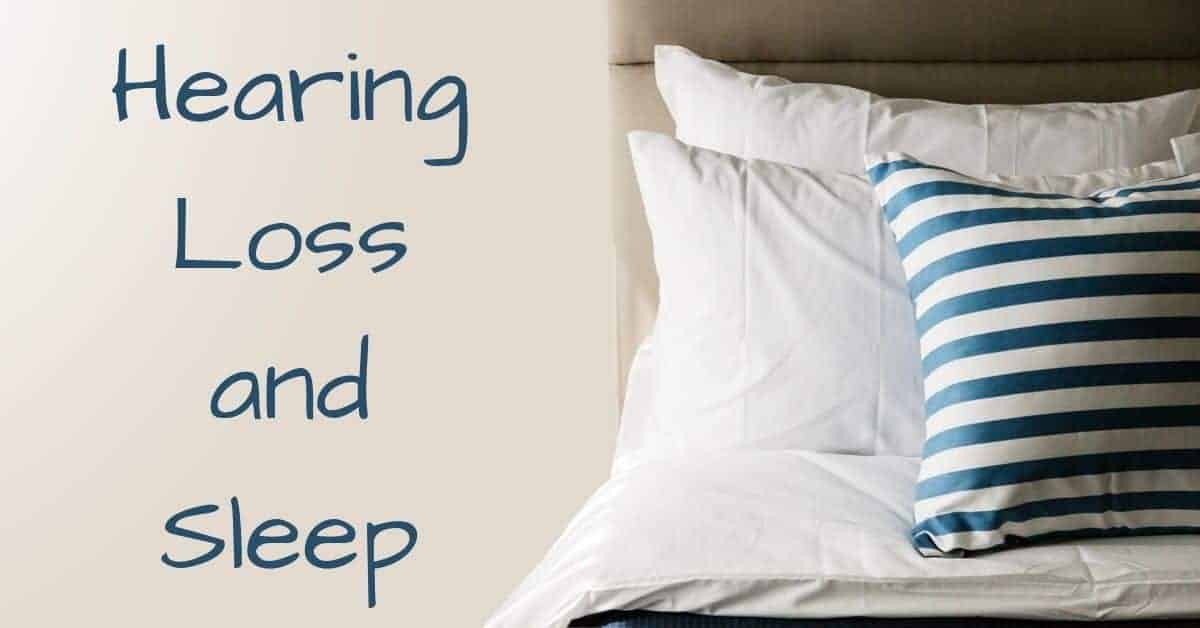Sleep is vital for our physical and mental health, providing our body and mind the opportunity to take a break from a challenging day. It should come as no surprise that a lack of sleep or poor-quality sleep can have serious impacts on our health.
Although humans have always slept, researchers still don’t understand completely what happens during sleep. Good sleep is a key component of our well-being, and the impacts of sleep loss are broad but can also be affected by many different things.
Hearing loss could both be one of those influences. While scientists are still researching the effects, a complicated relationship exists between hearing loss and sleep. Here are three correlations between hearing loss and sleep.
Poor hearing could lead to poorer sleep
Sleeplessness is prevalent among those who are deaf or have trouble hearing. Studies have shown that two-thirds of deaf people reported insomnia. An elevated frequency is also observed among those with workplace hearing loss, sudden hearing loss (SSNHL) and tinnitus.
One reason for these figures could be emotional distress. Sleep and depression go together and it’s sometimes difficult to tell which is influencing the other. Because those with hearing loss are at a greater risk of depression, mood disorders might be a key factor influencing sleep issues.
Poor hearing could lead to better sleep
However, there is also research that suggests that hearing loss could actually lead to better sleep. A recent study found that middle-aged and old individuals with hearing loss slept better and longer than their hearing counterparts.
This finding is consistent with the anecdotal experience of individuals who lost their hearing later in their lives. Because ambient noise is no longer disturbing them, sleeping becomes easier and they find it easier to stay asleep.
A study involving guinea pigs also contradicts the idea that people who are deaf and hard of hearing experienced less sleep. Guinea pigs showed enhanced REM and slow wave sleep when they had damaged cochleae (the structure in the interior ear that helps you to hear). The scientists speculated that their deeper sleep was a result of the ‘noise-cancelling’ effects of hearing loss.
Sleep apnea could lead to poorer hearing
Studies have also shown a link between obstructive sleep apnea and hearing loss. People with sleep apnea often stop breathing while they are sleeping for brief periods. It impacts about 40 million Americans and can lead to a number of other symptoms. Blood flow to the inner ear is decreased when a person stops breathing. If it occurs regularly over a period of time, this may cause cochlear inflammation which can cause hearing loss.
Sleep deprivation can to affect brain function. It takes a lot of mental work to understand others when you have hearing loss. A lack of sleep can therefore exacerbate an existing hearing loss, since poor sleep can reduce the ability of the brain to make sense of sounds.
What about tinnitus?
Up to 77% of tinnitus patients suffer from sleep problems. Although this is likely because of the noise that makes it hard to sleep, it might be that it is the sleep that is affecting the tinnitus symptoms.
Problems sleeping can be hard for anyone, however for individuals with tinnitus, loss of sleep is especially difficult. The symptoms of tinnitus are aggravated by the lack of sleep, and the tinnitus in turn reduces the likelihood of sleep. This is a vicious cycle that becomes very tough to break.
Fortunately, even treatment of one phase of this cycle can improve things. Those who have ever used white noise or rain sounds to sleep better are already using a type of sound therapy. Silence exacerbates the symptoms of tinnitus; therefore, a level of background noise can be beneficial to sleep.
The use of hearing aids may also alleviate sleep issues associated with hearing loss. A research of tinnitus and hearing loss volunteers discovered that the quality of their sleep improved considerably after they began to use hearing aids.
Hearing Wellness Solutions
While the connection between hearing loss and sleep is often contradictory, one thing is certain – hearing loss can be seriously detrimental to physical, mental and emotional health. Luckily, it can also be treated very successfully with hearing aids. If you have noticed changes in your hearing, contact us today to set up a hearing test.


